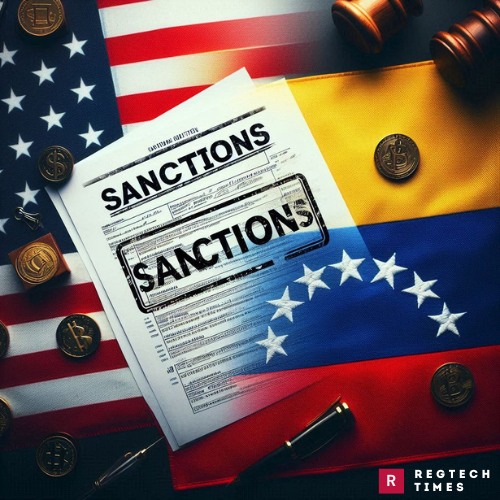As tensions rise over Venezuela’s disputed presidential election, the United States is gearing up to impose fresh sanctions on a group of approximately 60 Venezuelan government officials and their family members. These sanctions, if implemented, would mark a significant escalation in the U.S.’s efforts to pressure the Maduro regime, following what Washington and other international observers have described as a fraudulent electoral process.
The Sanctions Strategy
The U.S. Treasury Department has reportedly drafted a list of Venezuelan officials, specifically targeting individuals connected to key state institutions such as the National Electoral Council (CNE), the Supreme Court, and the counterintelligence police. These entities have been at the center of allegations regarding electoral manipulation and political repression, which have only deepened Venezuela’s ongoing political crisis.
The proposed sanctions aim to penalize those involved in undermining Venezuela’s democratic processes by imposing travel bans and restricting financial activities. The travel bans would prevent the targeted individuals and their families from entering the United States, while the financial restrictions would prohibit U.S. entities from engaging in business transactions with them. This dual approach is designed to isolate these officials both diplomatically and economically, thereby increasing pressure on President Nicolás Maduro’s government.
Background of U.S. Sanctions on Venezuela
This latest move by the U.S. is part of a broader strategy that has evolved over the past several years. The U.S. has long used sanctions as a tool to counteract what it views as the authoritarian tendencies of the Maduro regime. Since Maduro’s controversial re-election in 2018, the U.S. has implemented some of the most severe sanctions in its arsenal, particularly targeting Venezuela’s critical oil industry.
These sanctions have had a profound impact on Venezuela’s economy, which is heavily dependent on oil exports. In April 2023, the U.S. Treasury Department chose not to renew a broad license that had previously permitted Venezuela to freely export its oil, opting instead to issue individual licenses to select energy companies. This decision underscored the U.S.’s commitment to maintaining economic pressure on the Maduro regime while limiting the flow of resources that could sustain his government.
The Disputed Election and International Reactions
The July 28 election, in which the CNE declared Maduro the winner, has been widely criticized both within Venezuela and by the international community. Opponent Edmundo Gonzalez, supported by opposition groups, has claimed victory, citing alternative vote tallies that suggest he received about 67% of the vote. The lack of transparency in the vote counting process has led to accusations of electoral fraud, which have further eroded confidence in Venezuela’s democratic institutions.
In response to these allegations, the U.S., together with allies like Canada, the European Union, and the Organization of American States (OAS), has demanded the full disclosure of election results and a comprehensive investigation into the reported irregularities. Senior U.S. officials have indicated that the electoral manipulation stripped Maduro’s victory of any credibility, setting the stage for the proposed sanctions.
Implications of New Sanctions
The potential impact of these new sanctions could be significant. By targeting key figures within the Venezuelan government, the U.S. aims to disrupt the networks that support Maduro’s hold on power. The sanctions could also serve as a deterrent to others within the regime, signaling that continued support for Maduro’s government could lead to personal and financial repercussions.
The effectiveness of sanctions as a means of driving political change in Venezuela continues to be a subject of debate. Although previous sanctions have clearly exerted economic pressure on the Maduro regime, they have also exacerbated the humanitarian crisis in the country. Critics argue that sanctions often harm ordinary citizens more than the political elites they are intended to target, leading to increased poverty, food shortages, and a mass exodus of Venezuelans seeking refuge abroad.
Despite these concerns, the U.S. appears committed to using sanctions as a means of influencing the political situation in Venezuela. As one U.S. official stated, the goal is to “incentivize and pressure” Maduro to recognize the true outcome of the disputed election. Whether this strategy will succeed in bringing about meaningful political change in Venezuela remains to be seen.


